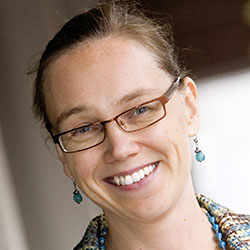HINE workshop
The Hammersmith Infant Neurological Examination (HINE) is a standardised and scoreable clinical neurological examination that can be used to assess infants from 2-24 months of age. The HINE contains 26 items across 5 domains and summing of scores in each domain provide a global score. More than ten studies of high risk newborns (preterm and term) have demonstrated that this assessment can be used in the diagnosis of cerebral palsy (CP). At 3 months of age, a HINE score <57 is predictive of CP (sensitivity 96%; specificity 87%). In addition the HINE can provide information on the type and severity of CP as it can be used for sequential clinical follow-up. Specific cut-off scores for predicting CP both in preterm and full-term infants have been published. Severity of motor impairment can also be predicted with scores below 40 predicting non ambulant cerebral palsy. The International Clinical Practice Guideline for the Early Accurate Diagnosis of Cerebral Palsy recommends the use of the HINE, particularly in situations where the most predictive tools (general movements and MRI) are not able to be used. This workshop session will provide standardized training in the Hammersmith Infant Neurological Assessment with an original author of the HINE, Professor Leena Haataja. All items in the HINE will be presented with the correct approach to administration and scoring. Infants aged between 6-24 months will be used to train the participants in small groups in accurate scoring of the HINE.
Course Objectives:
- Outline the current evidence for use of the Hammersmith Infant Neurological Examination (HINE) for the early detection of infants at high risk of CP.
- Demonstrate the HINE with three case examples and train clinicians and researchers how to administer the assessment in infants at risk of CP.
- Provide an opportunity for participants to score cases of infants at risk of CP on the HINE to determine their risk status.
- Understand the role of HINE in prioritising intervention goals.
Who should attend?
Any individual interested in or currently involved in clinical practice and research for early identification and provision of early intervention for infants at high risk of cerebral palsy. This workshop is suitable for any level and there are no pre requisites.
Registration is currently at capacity. Please email qcprrc@uq.edu.au to be placed on the waitlist.
- Cost: $150
- Repeated sessions on Wednesday 8th November, please register for one session only (Workshop 1: 9am to 1pm or Workshop 2: 2pm to 6pm)
- Registration includes refreshments
- Venue: Centre for Children’s Health Research, 62 Graham St South Brisbane 4101.
Download the course flyer HERE
Accommodation
Registrants are able to access a special group discounted accommodation rate via a unique web link with our preferred supplier, Swiss-Belhotel at 218 Vulture St, South Brisbane. For further details and to book, please visit http://www.swiss-belhotel.com/QCPRRC. Bookings are encouraged early as there is limited availability.
Cancellation
There is a high demand for this training course. There are a limited number of places and we will wait-list once we reach capacity for each workshop. If you have registered for a course and cannot attend, we would appreciate knowing as early as possible so that we can offer your place to someone else. Please email qcprrc@uq.edu.au to cancel your registration. If you cancel more than 2 weeks before the event, we may be able to offer a part/full refund of your registraion fees. If registration is cancelled within 2 weeks of the event date, you may forfeit the full registration fee.
Course tutor
Professor Leena Haataja (MD, PhD)
Professor of Child Neurology, University of Helsinki
A central objective of Prof. Leena Haataja’s research activities is to study fetal and neonatal risk factors (e.g. prematurity, brain injuries, inflammation), and potential protective factors (e.g. genetic mechanisms, early parent-infant interaction) and their possible long-term neurodevelopmental effects. Another important research focus is to standardize clinically applicable developmental assessment methods and compose treatment guidelines which would harmonize clinical treatment processes at national level (e.g. the processes of care for children with CP) in order to make intervention studies and benchmarking possible.

